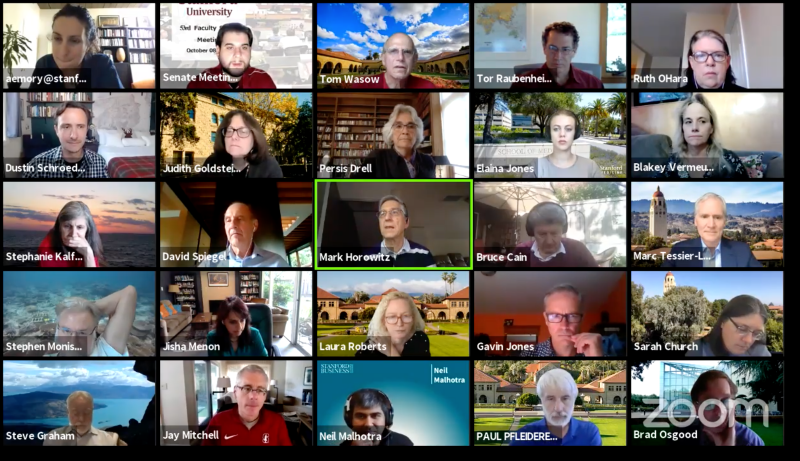Provost Persis Drell announced the creation of a task force to consider new infrastructure for the study of race and racial justice at Stanford during Thursday afternoon’s Faculty Senate meeting.
“American society has fallen short of its promise of equal rights,” Drell said. “We believe Stanford has a dual responsibility first to produce knowledge and understanding that assesses the persistence of racial inequality and second to educate our students for participation in a diverse and multicultural world.”
The task force is being asked to analyze a variety of questions regarding racial studies at Stanford, including what university structure would best facilitate improving research in these fields, how changes in university structure would fit within and aside existing departments and what short- and long-term goals Stanford should pursue in the realm of racial studies.
Additionally, the task force is encouraged to consider the departmentalization of Stanford’s African and African American Studies (AAAS) program.
Amid nationwide protests over racial injustice, Stanford students and faculty members have called for the departmentalization of AAAS. Over 5,000 people have signed a petition to departmentalize AAAS, and Stanford faculty have become increasingly active in their advocacy for departmentalization.
The task force is co-chaired by psychology professor Claude Steele and sociology professor Matthew Snipp. It includes Director of African American Studies Allyson Hobbs, who has previously called on Stanford to invest further in Black Studies.
The task force is expected to produce a report and present its findings by May 1 of next year.
“Especially in this time of growing national concern about racial justice and inequality,” Drell said, “it’s very important to ask if Stanford currently has the institutional organization to really attack these issues. If not, what infrastructure might support Stanford achieving leadership in these areas?”
In addition to Drell’s announcement, the Faculty Senate voted to approve of a motion encouraging faculty flexibility and student engagement surrounding the Nov. 3 election.
The motion “urges instructors to support civic engagement by students” with three optional suggestions: cancelling classes scheduled to meet on Election Day, recording Election Day lectures so that students may view them at a later time and adjusting assignments to accommodate civic engagement.
The motion also instructs the Committee on Undergraduate Standards and Policy, in consultation with the Registrar’s Office, to make a recommendation to the Senate about whether or not future election days should be academic holidays.
Many Faculty Senate members said they were satisfied with this motion, citing the importance of civic participation for both Stanford students and faculty.
“There aren’t many times these days when I find myself feeling optimistic but this motion is one of them,” stated Associate Chair of Psychiatry David Spiegel.
Debra Satz, dean of the School of Humanities and Sciences emphasized the importance not only of student engagement, but also University faculty and staff engagement.
“I am signed up to be a poll worker myself, and I am taking that day,” she said. “I understand the timing issue, and I think it makes sense in this particular year to have the wording [for the motion] a bit more flexible, but I would hope going forward, we actually have a day of recognition of the importance of citizenship and voting at Stanford.”
Contact Nina Iskandarsjach at ninaisk ‘at’ stanford.edu.
